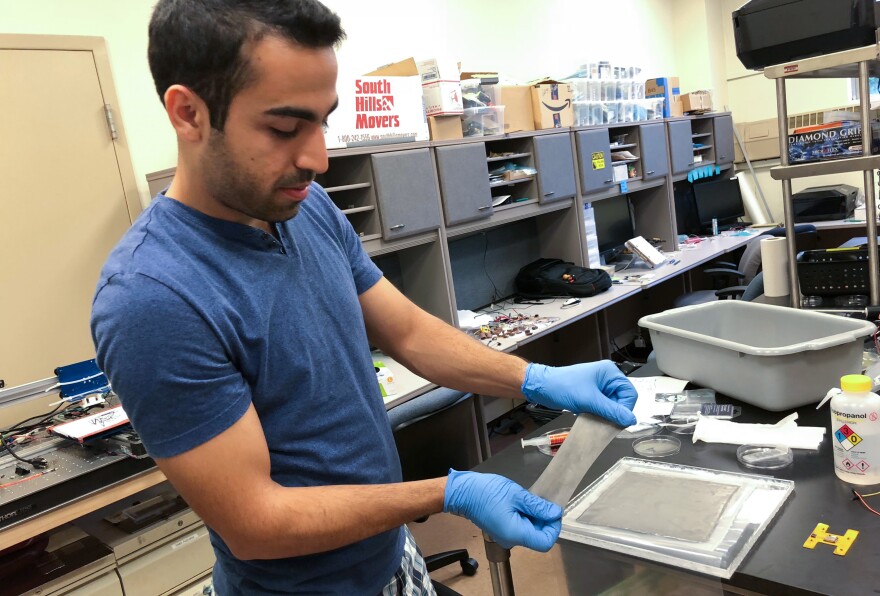People want their electronics to be increasingly small and powerful, but keeping those devices running at high speeds can be a challenge.
“These electronics get really hot,” said Navid Kazem, who recently wrapped his doctorate in computational mechanics at Carnegie Mellon University. “When your computer gets hot, the software inside the computer intentionally reduces the performance of the computer in order to [let] that chip cool down.”
Kazem and his advisor Carmel Majidi, a professor in CMU’s mechanical engineering department, are the co-creators of Thubber — as in “thermally conductive rubber.” The material's exterior is silicone rubber, but embedded within is an alloy of the metal gallium, which is liquid at room temperature. This composition lets Thubber conduct heat and electricity, like a metal, without sacrificing its soft, stretchy properties.

Kazem said that combination of factors makes Thubber a better, more durable replacement for thermal pastes. These are gels which are used in the cooling mechanisms of computers, acting as an interface between the hot processors and other metal components called heat sinks, designed to carry the heat away and dissipate it into air or a coolant.
Inside the electronics, the thermal pastes tend to dry out and form air pockets over time, which decreases their effectiveness and degrades the cooling capabilities of the device. Replacing thermal pastes with Thubber could keep devices running faster for longer.
Kazem said Thubber could also be useful when it comes to creating “soft” robots.
“Most of the robots around us are made of rigid materials like ceramics, metals and carbon. But…in order to have robots which are safe [for us to be around], we really need to start moving away from those hard parts and start adapting some softer materials,” said Kazem.
Kazem said that previous strategies for combining the properties of rubbers and metals involved embedding rigid forms of metal into rubbers, which compromised the softness and flexibility of the resulting material.
He said that the method of embedding the gallium alloy could be adapted to other rubber bases besides silicone for different applications.
Kazem and Majidi have plans to commercialize Thubber under their own startup company, Arieca, which is a member of the hardware accelerator AlphaLab Gear’s most recent cohort.




